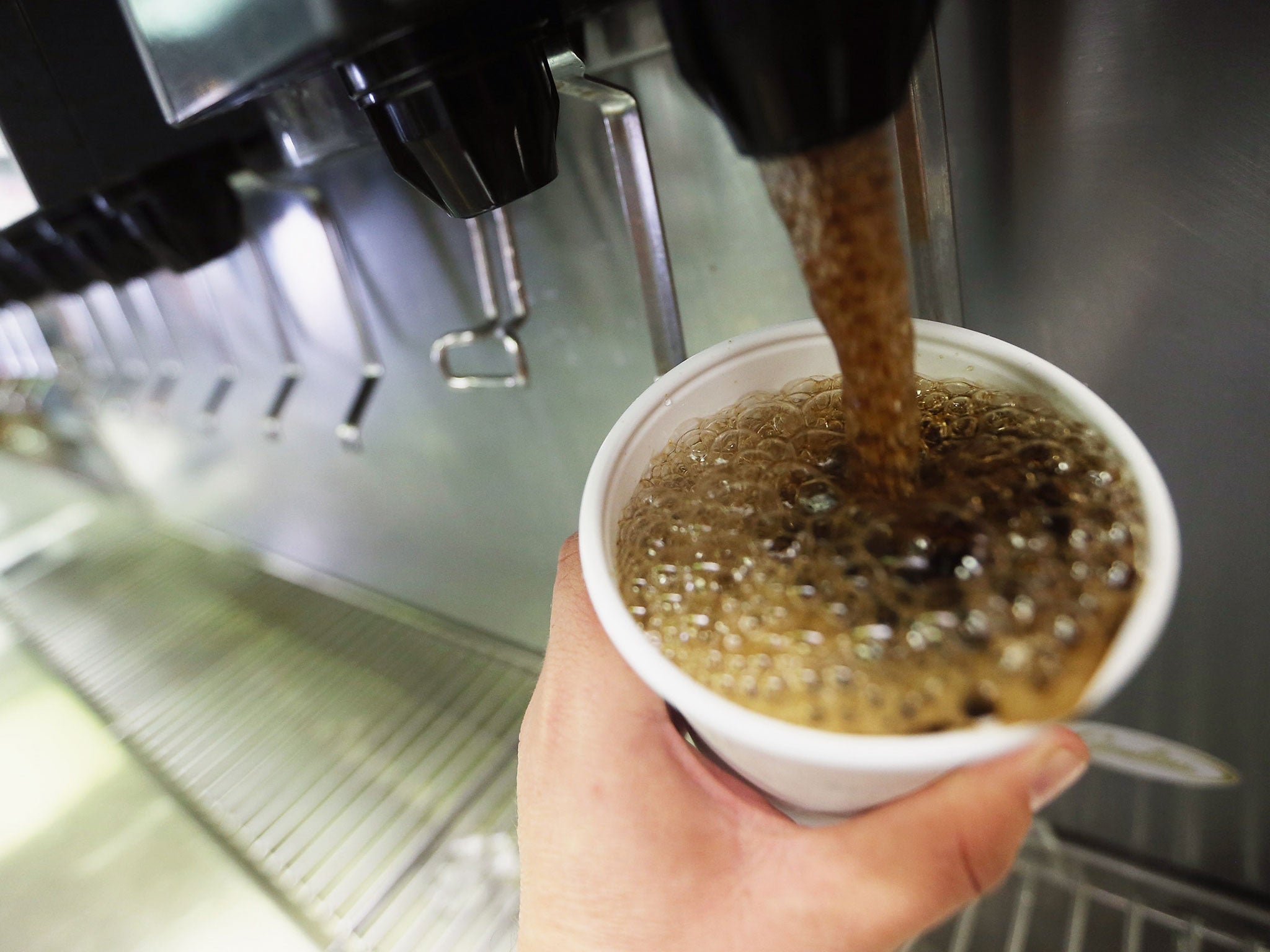Sugar tax: Charge on soft drinks 'could prevent 3.7m obesity cases'
Cancer Research UK and the UK Health Forum have called for a 20 per cent tax on sugary drinks

Your support helps us to tell the story
From reproductive rights to climate change to Big Tech, The Independent is on the ground when the story is developing. Whether it's investigating the financials of Elon Musk's pro-Trump PAC or producing our latest documentary, 'The A Word', which shines a light on the American women fighting for reproductive rights, we know how important it is to parse out the facts from the messaging.
At such a critical moment in US history, we need reporters on the ground. Your donation allows us to keep sending journalists to speak to both sides of the story.
The Independent is trusted by Americans across the entire political spectrum. And unlike many other quality news outlets, we choose not to lock Americans out of our reporting and analysis with paywalls. We believe quality journalism should be available to everyone, paid for by those who can afford it.
Your support makes all the difference.A tax on sugary drinks could prevent 3.7 million cases of obesity in the UK over the next decade, according to a report.
The figures will increase pressure on the Government over its strategy on childhood obesity, which is due to be published in the next few weeks.
Cancer Research UK and the UK Health Forum calculated that a 20 per cent tax on sugary drinks could reduce obesity rates in the UK by 5 per cent by 2025.
This is equal to 3.7 million fewer obese people - the combined populations of Birmingham, Leeds, Sheffield, Manchester, Bristol and Leicester.
The report also predicts that a sugar tax could save the NHS about £10 million in healthcare and social care costs in 2025 alone.
Several charities and high-profile campaigners, including celebrity chef Jamie Oliver, are calling for a sugar tax as part of a range of measures to cut obesity and the amount of sugar in children's diets.
Alison Cox, Cancer Research UK's director of cancer prevention, said: “The ripple effect of a small tax on sugary drinks is enormous. These numbers make it clear why we need to act now before obesity becomes an even greater problem.
“There are a lot of things working against us when it comes to making healthier choices. We're all bombarded by junk food advertising of cheap foods packed with extra calories and it can be tough for parents to do what's best for their children.
“The Government has a chance to help reduce the amount of sugar consumed by adults and children and to give future generations the best chance of a healthier life.”
Being overweight or obese can lead to many health problems, including cancer, Type 2 diabetes, heart disease and stroke.
Cancer Research UK is calling for a tax on sugary drinks, a ban on junk food adverts on TV before the 9pm watershed, and new targets for reducing the amount of fat and sugar in food.
Jane Landon, deputy chief executive of the UK Health Forum, said: “Countries which have introduced a tax on sugary drinks have not only reduced consumption, they have raised much-needed revenues for public health measures.
“These figures indicate that even a modest tax at 20 per cent - as part of a society-wide response - could help to deliver the scale and pace of change needed to turn around the UK's crisis of obesity-related ill-health.”
Earlier this month, a Cancer Research UK poll found that three-quarters of adults supported a ban on junk food advertising before the 9pm TV watershed.
Some 74 per cent would back a ban while 55 per cent also wanted a tax on sugary drinks.
Current estimates for school-age children are that 14.7 per cent of their calorie intake is made up of sugar.
The main sources of sugar include soft drinks, table sugar, confectionery, fruit juice, biscuits, buns, cakes, pastries and puddings and breakfast cereals.
Soft drinks (excluding fruit juice) are the largest single source of sugar for children aged 11 to 18. They provide 29 per cent of daily sugar intake, on average, for this age group.
A third of 10 to 11-year-olds and more than a fifth of four to five-year-olds in England are overweight or obese.
Barbara Dinsdale, lifestyle manager at the charity Heart Research UK, said: “This report illustrates loud and clear the huge impact that a 20 per cent sugar tax - as one part of a wider range of activities - can have.
“Whatever it takes to help wean consumers off highly sweetened and energy dense products - contributing to the overconsumption of calories - can only have a positive effect on individuals and the health of the nation.”
Gavin Partington, director general of the British Soft Drinks Association, said: “The hypothetical claims made in this modelling study run contrary to real-world evidence. In fact, the soft drinks tax in Mexico has reduced average calorie intake by six calories per person, per day with no evidence that it has reduced levels of obesity.
“The most comprehensive study into tackling obesity, from the McKinsey Global Institute 2014 report and Public Health England, found that a tax would be much less effective than reducing portion sizes and reformulating products.
“These are steps that our industry is already taking and as a result has reduced calories by 7.5 per cent since 2012 with plans to reduce a further 20 per cent by 2020.”
Press Association
Join our commenting forum
Join thought-provoking conversations, follow other Independent readers and see their replies
Comments